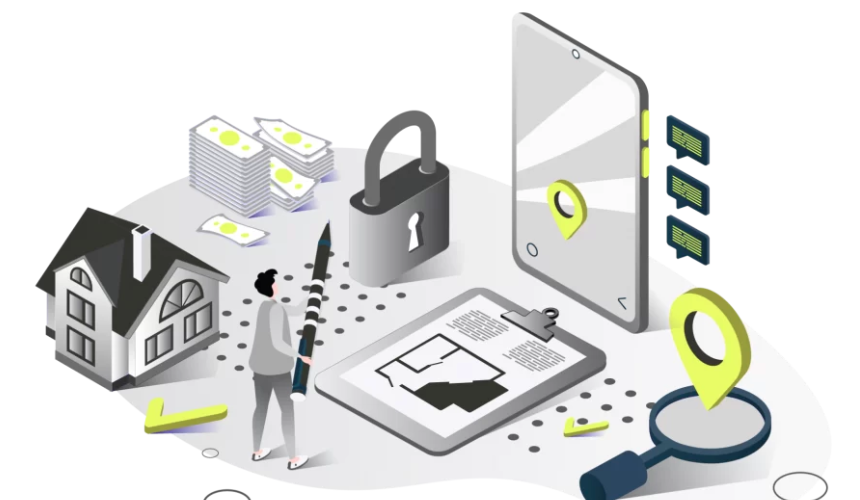Guide To Choosing The Right Online Early Childhood Education Program

Choosing the right early childhood education degree online is a critical decision for those looking to pursue a career in the rewarding field of early childhood education. As the demand for qualified educators grows, online programs have become a convenient and flexible option for those wishing to balance work, life, and education. However, with so many options available, it’s essential to understand what to look for in a program that aligns with your career goals and personal needs.
In this guide, we will walk you through the steps of selecting the right online early childhood education program and explore the key factors to consider, including accreditation, curriculum, faculty, and cost.
Why Choose an Online Early Childhood Education Degree?
An online early childhood education degree offers flexibility for working adults, parents, or anyone who cannot commit to a traditional classroom setting. Some benefits of pursuing an online degree include:
- Flexibility: Online programs allow you to study from anywhere, at any time, making it easier to balance work, family, and education.
- Affordability: Online programs often have lower tuition rates compared to traditional programs, and you save on commuting costs.
- Convenience: With digital resources, students can access lectures, assignments, and discussions remotely, making it easier to complete coursework at their own pace.
- Career Growth: Earning an early childhood education degree online can open up a variety of career opportunities in schools, daycare centers, non-profit organizations, and more.
Key Considerations When Choosing an Online Early Childhood Education Program
When choosing the right early childhood education degree online, there are several factors to keep in mind to ensure that you receive a quality education and are prepared for a successful career in the field.
1. Accreditation
Accreditation is one of the most critical factors when selecting an online program. An accredited program ensures that the institution meets established academic standards and that the degree you earn will be recognized by employers and other educational institutions.
There are two primary types of accreditation to look for:
- Regional Accreditation: This type of accreditation is granted by agencies recognized by the U.S. Department of Education. It ensures the program is of high quality and that credits earned can be transferred to other accredited institutions.
- Programmatic Accreditation: Specifically for early childhood education programs, look for accreditation from organizations like the National Association for the Education of Young Children (NAEYC). This accreditation ensures the program meets high standards for preparing educators in the field.
2. Curriculum and Specializations
The curriculum of your online early childhood education degree should be comprehensive, covering essential topics such as child development, teaching strategies, and classroom management. Additionally, some programs may offer specializations that allow you to focus on particular areas of early childhood education, such as:
- Special education
- Bilingual education
- Administration and leadership in early childhood settings
Be sure to review the course list and ensure that it aligns with your interests and career goals. Look for programs that incorporate real-world applications, such as internships or practicums, to help you gain hands-on experience.
3. Faculty and Support
A strong faculty with real-world experience in early childhood education can significantly enhance your learning experience. Check the credentials of the instructors in the program, including their education and experience in teaching or working with young children. Experienced faculty can provide valuable insights, mentorship, and networking opportunities.
Additionally, look for programs that offer strong student support services. These may include academic advising, career counseling, tutoring, and access to alumni networks. A strong support system can help you succeed academically and professionally.
4. Cost and Financial Aid
The cost of obtaining an online degree can vary significantly depending on the institution. While online programs often offer lower tuition than traditional programs, it’s essential to consider other costs, such as technology fees or textbook expenses.
Before enrolling, check if the program offers financial aid options, such as scholarships, grants, or work-study opportunities. Additionally, inquire about payment plans or the possibility of employer tuition reimbursement if you are already working in the field.
5. Student Reviews and Success Rates
To gauge the quality of an online early childhood education program, it’s helpful to read reviews from current and past students. Look for feedback on the quality of the coursework, the responsiveness of faculty, and the overall student experience. You can find reviews on university websites, independent forums, and social media platforms.
Additionally, check the program’s graduation rates and job placement statistics. A high job placement rate can indicate that graduates are well-prepared for careers in early childhood education.
How to Choose the Best Online Early Childhood Education Program for You
Now that you know what factors to consider, here are the steps you can follow to find the best online program for your needs:
Step 1: Identify Your Goals
Before you begin searching for programs, think about your career aspirations. Do you want to work in a preschool or daycare center, or are you aiming for a leadership role in early childhood education? Identifying your goals will help you choose the right specialization and ensure the program offers the relevant coursework.
Step 2: Research Your Options
Start by researching accredited online programs that offer early childhood education degrees. Look for schools with strong reputations, experienced faculty, and robust curricula. Use online resources, such as college comparison websites and review platforms, to find detailed information about each program.
Step 3: Compare Programs
Once you have a list of potential programs, compare their offerings. Look at the cost, accreditation status, faculty qualifications, and specializations. Additionally, consider the length of the program, any required on-campus visits, and the availability of financial aid.
Step 4: Contact Admissions
Reach out to the admissions department to ask any questions you may have. This is a great opportunity to learn more about the application process, deadlines, and any additional requirements for the program.
Popular Online Early Childhood Education Programs in 2025
Here’s a quick comparison of some top early childhood education degree online programs available in 2025:
| School | Accreditation | Specialization Options | Estimated Tuition | Graduation Rate |
|---|
| University of Phoenix | Regional & NAEYC | Early Childhood Administration, Special Education | $500 per credit hour | 70% |
| Walden University | Regional & NAEYC | Early Childhood Leadership, Special Needs Education | $450 per credit hour | 75% |
| Capella University | Regional & NAEYC | Inclusive Early Childhood Education | $400 per credit hour | 80% |
| Ashford University | Regional & NAEYC | Infant-Toddler Care, Child Development | $450 per credit hour | 78% |
| Southern New Hampshire University (SNHU) | Regional Accreditation | Bilingual Education, Early Childhood Administration | $320 per credit hour | 85% |
Conclusion
Choosing the right early childhood education degree online program is an essential step toward advancing your career in education. By considering factors such as accreditation, curriculum, faculty expertise, cost, and support services, you can make an informed decision that aligns with your personal and professional goals.
Whether you are looking to work in a classroom setting, become a program director, or specialize in early childhood education for children with special needs, the right online program will provide the tools and knowledge necessary to succeed in this fulfilling field.









